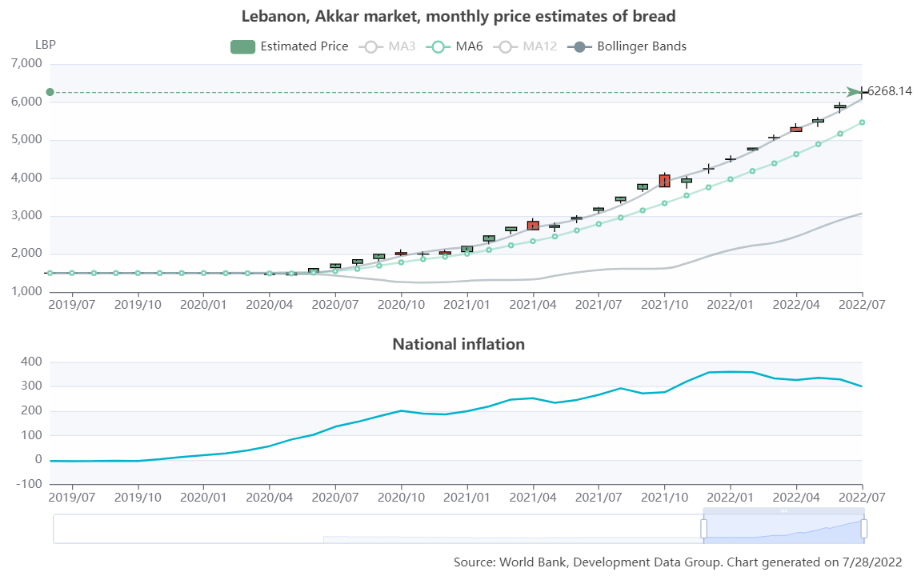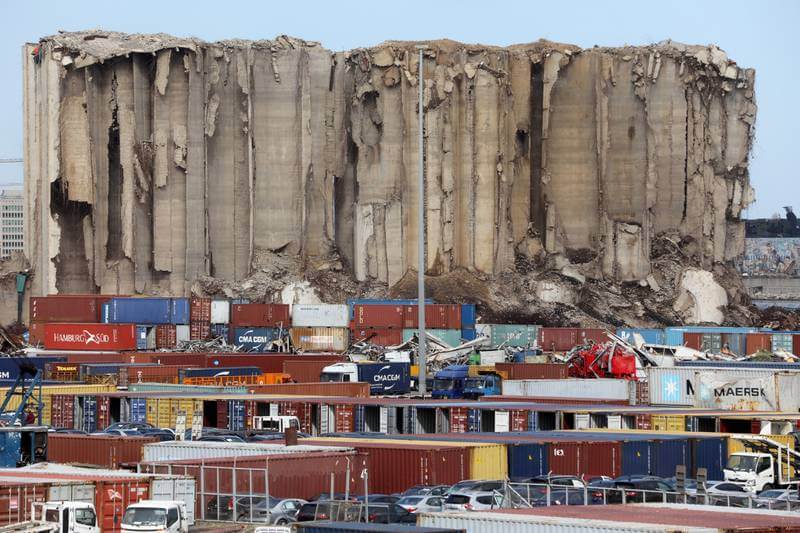Lebanese Prime Minister Najib Mikati warned on Wednesday that Beirut’s wheat silos are at risk of collapsing as multiple storage units have been on fire for more than two weeks. Mikati’s warning comes amid a massive wheat shortage and skyrocketing food prices in the Mediterranean country.
“The northern group of silos are now in danger of falling,” Mikati said and alerted the army regarding the situation. He told troops to prepare for an imminent collapse of the silos and warned citizens to avoid going near the structure.
Bits of #lebanon ‘s grain silos destroyed in the horrific #Beirut port explosion on Aug 4, 2020 have been burning for weeks. Now the ministries of health and environment warning of a potential health hazard if they collapse and asking residents to mask up! Disaster in the making pic.twitter.com/g36FCyFu64
— Maha Yahya (@mahamyahya) July 26, 2022
Mikati’s warning came two days after the Lebanese Health Ministry issued a notice on “preventive measures related to the possibility of the collapse” of the silos. The ministry warned that a massive plume of dust consisting of construction waste and other debris would be emitted if the structures collapsed.
It added that fungi from rotting grains could be dispersed into the air and affect nearby residents. In the event of a collapse, the ministry urged citizens residing within 1,500 metres of the site to close windows and doors and wear anti-pollution masks.
Breaking: A helicopter is dumping water on the Beirut port’s grain silos to extinguish the fire. #Lebanon pic.twitter.com/xrfwft1yRN
— Daniel Carde (@DSCarde) July 16, 2022
“Precaution and caution remain one of the best means necessary for public safety and to protect health and the environment in the hope that we will be free of any risks,” it stated.
Earlier this month, a fire broke out in a small area of the silos due to rising temperatures and fermenting wheat. The fire, which was neglected by authorities, later spread to other parts of the silos. Smoke from the blaze has been visible from the structure for over two weeks.
The silos currently hold around 800 tonnes of wheat and given that the grains have been fermenting for almost two years, the fire is expected to spread rapidly. Experts have also warned that the fire could reach nearby electric cables and trigger an explosion that could cause the entire structure to collapse.
Despite one of the largest and most traumatizing blasts of a city #Beirut, the Silos stood still. After 2 weeks letting them on fire under government watch, they might fall tonight. It is one of the biggest scams for land exploitation by the corrupt elite 🤬 pic.twitter.com/kg8swjaIN3
— Gilbert Doumit (@GilbertDoumit) July 27, 2022
The silos were partially destroyed in the 2020 Beirut port blast, which resulted in more than 200 deaths and about $15 billion in economic losses. The 48-metre-high structure was built in 1970 to store more than 100,000 tonnes of wheat.
Lebanese officials have called on civil defence forces and firefighters to end the blaze. Last week, Interior Ministry Bassam al-Mawlawi asked civil defence forces to launch cooling operations to prevent the fire from spreading. On Wednesday, Economy Minister Amin Salam said Lebanon plans to build two new grain silos to address the country’s food crisis. He added that the total cost of constructing the silos is estimated to be around $100 million and revealed that countries and international organisations have expressed interest in funding the construction.
The World Bank has stated that Lebanon’s economic crisis ranks as one of the worst that the world has witnessed in over 150 years. The Lebanese pound has lost almost 95% of its value, and three-quarters of its population is on the brink of poverty. The country is also facing severe food, medicine, and fuel shortages. The GDP growth rate has crashed by around 40%, unemployment levels have skyrocketed, and inflation has soared to almost 890% since the onset of the crisis.

Moreover, most of Lebanon’s food imports, including 80% of its wheat supplies, come from Ukraine and Russia. The Russian blockade of Ukraine’s ports has prevented critical grain supplies from reaching Lebanon, and as a result, bread prices have soared in the country.
The UN said last month that the Lebanese crisis had been exacerbated by the war in Ukraine, noting that there have been additional spikes in gasoline, diesel, and gas prices. “It threatens to tip thousands of families over the edge into food insecurity, malnutrition, and possibly hunger,” the UN noted.

